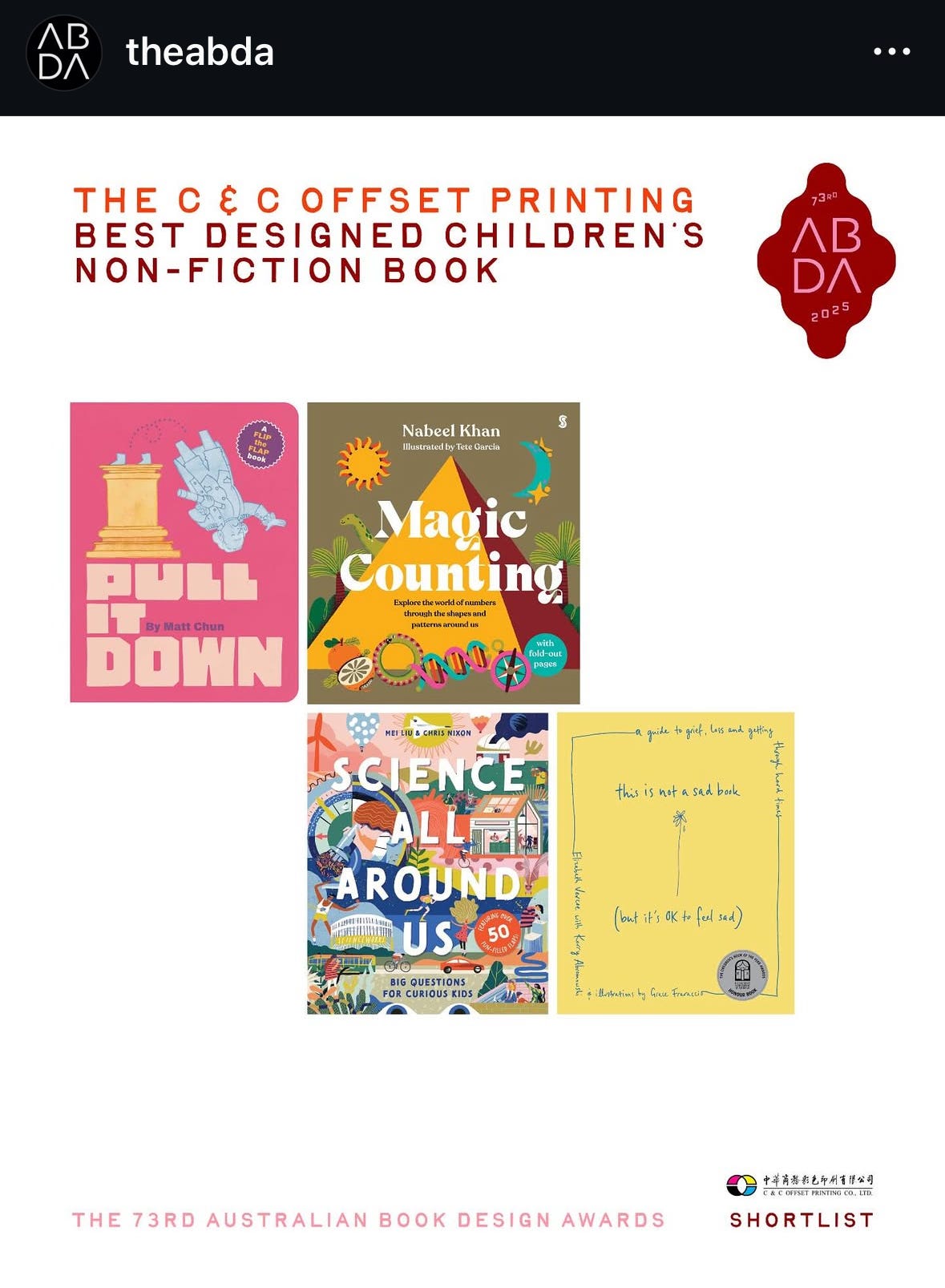Debris Magazine
Last month, I completed a little sequence of pencil sketches with accompanying hand-written text — referencing the form of a rough and sketchy picture book storyboard — for Debris Magazine's upcoming Issue 5, co-edited by the excellent Jazz Money and Mariam Arcilla.
I focussed my piece on the challenges of cultivating the joy required for my two primary roles (parenting and making children’s books) while also confronting imperialism and bearing witness to genocide. How do we care and create with the necessary measure of delight while consumed with grief and rage? And how do we nurture a revolutionary and age-appropriate anti-imperialism in our children — as joyful and generative as it is necessarily oppositional and deconstructive?
This week the issue’s cover was revealed, featuring a beautiful image by fellow contributor Hoda Afshar:
Purchase a copy of Issue 5 here and follow Debris on Instagram for news about launch events in Melbourne, Sydney, Paris and Istanbul.
While working on this sequence it was affirming to see that Debris Magazine (Victoria Pham and Julia Flaster) identified Palestine as the issue — and Zionism as the problem — in their statement on the Venice Biennale.
Amongst countless statements in support of Khaled Sabsabi released by Australian institutions and organisations, only two or three have yet been brave enough to actually name the enemy — Zionism — or even to contextualise this act of censorship beyond the immediate and individualist concerns of an overwhelmingly Zionist-compliant industry.
Pull it Down shortlisted for the ABDAs
Pull it Down has progressed from longlist to shortlist in the Australian Book Design Awards. I've always had mixed feelings about these systems of reward, and in the context of escalating horrors, they feel increasingly abstract, if not utterly trivial.
However, I do have enormous appreciation for the courage of judges who are willing to give a book like Pull it Down such establishment recognition - despite the criticism that this will almost certainly attract - and I'm very grateful for the wider readership that such accolades bring.
My publisher Slingshot Books has commented:
There ought to come a day when nobody is comfortable naming their organisations, awards, schools, and cultural identities ‘Australian’. May that day come soon.
I hope seeing Pull it Down recognised in the Children’s Non-fiction category reminds people that this book is not just entertainment, it is an educational resource filled with indisputable grounds for pulling the symbols of colonialism down.
This is, however, a good moment to celebrate Pull it Down’s designer Dennis Grauel, to whom this accolade truly belongs. Dennis has a particular interest in the politics of typography, making them the perfect designer for this book. In their words:
Pull it Down deserved a simple typographic design that foregrounded Matt Chun’s interactive artwork, prioritised legibility, and engaged with a rich tradition of urgent protest typography within radical politics. I drew two custom typefaces: a stone-hewn titling face serving as a structural extension to a monument’s plinth; and a variable font synthesising two early groteseque poster faces, rendered as rough inky impressions. An index for grown-ups called for a functional but playful layout of coloniser bios as a handy reference for the critical conversations this book generates.
It has been my pleasure to work with Dennis since 2021 on the first two issues of The Sunday Paper. They also beautifully designed and type-set Pull it Down’s risograph-printed companion The Pull it Down Reader.
Pull it Down is available from Slingshot Books online, or from your local independent bookseller.
Workshop announcement:
Welcoming writers, artists, illustrators, comic creators, zine makers, publishing workers, caring creatives, anti-imperialists and anyone who would like to recalibrate their relationship with the publishing industry.
Day one: Saturday 31 May
What are the power structures, political imperatives and ideologies of western children’s publishing? How might these forestall or sabotage our collective liberation? What are the industry’s imperialist red lines and how do we cross them?
We’ll introduce and demystify the process of making both traditional and alternative print objects for children. We’ll answer your questions and resource you to navigate this industry.
Day two: Sunday 1 June
We’ll workshop your own manuscripts, portfolios and ideas in a supportive, engaged environment. If you want to take a conventional path with your work, we’ll provide you with the information you need. If you want to challenge conventions, we’re here to help you build a creative strategy.
Location
Schoolhouse Studios, Wurundjeri Land, Victoria Street, Coburg
Cost
$350 for 2 days / 10am–4pm / purchase tickets here
Free for First Nations people / email us to reserve your place — hello@slingshotbooks.com.au







